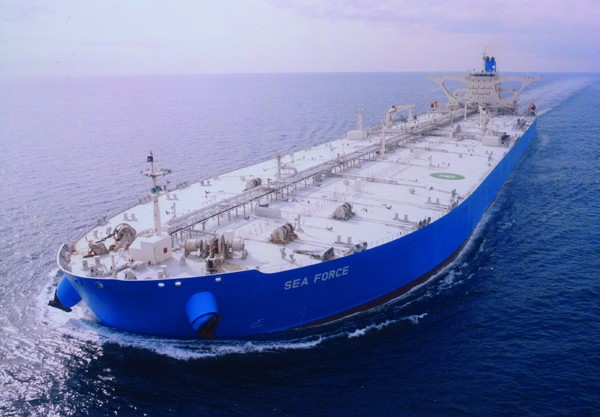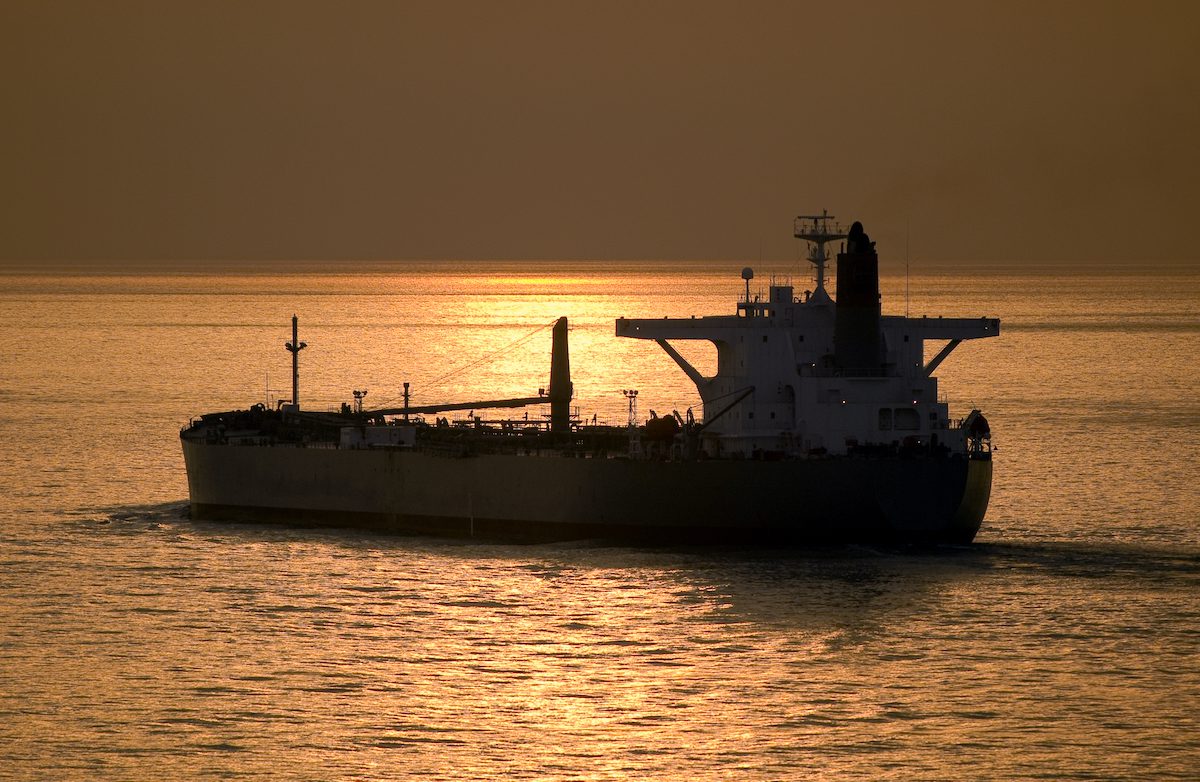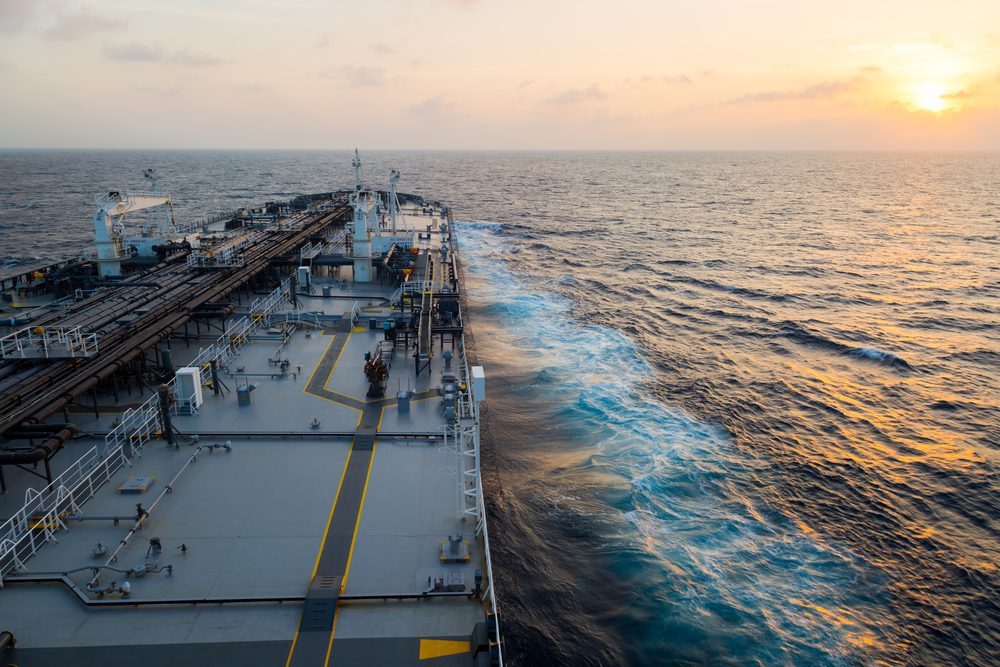Sea Force, a 305k DWT VLCC, image courtesy Frontline Tankers,
Earnings are about zero for the biggest oil tankers, hauling almost half the world’s seaborne crude, and owners of the ships may opt to remove them from service temporarily to stem losses, said Braemar Seascope Ltd.
Very large crude carriers transporting 2 million-barrel cargoes on the main route to Asia from the Middle East are earning zero dollars a day, the London-based shipbroker said in a report e-mailed yesterday. In contrast, first-quarter returns were “respectable” in the last few years, it said.
An oversupply of VLCCs is curbing earnings for the 610-ship fleet, estimated to carry about 48 percent of the world’s crude exports of 38.2 million barrels daily, according to Clarkson Plc, the biggest shipbroker. The temporary idling of a vessel from trade is known as layup in the industry.
“We may soon reach the point where layup is the only answer,” Braemar said. “Owners will begin to think, ‘Why earn zero with all the risks and wear and tear on the vessel operating her, when you can earn zero sitting her safely off Singapore and reduce crewing costs?’”
Still, owners try to avoid layup because they lose approval from oil companies to transport crude, Braemar said.
Owners seeking returns higher than zero can begin lifting earnings to $10,000 daily by carrying Middle East oil to the U.S. and then booking a second U.S.-to-Asia cargo, taking about three months for the entire journey, Braemar said.
Earnings Below Costs
“The dilemma for all shipowners and operators seems to be either to take zero earnings for a short period and hope for improvement, or to lock in for the entire quarter at daily earnings which still will not cover operating costs,” the shipbroker said.
About 65 percent of VLCC demand originates in the Middle East, according to McQuilling Services LLC, a Garden City, New York-based tanker consultancy.
Earnings for a round trip to Japan from the Middle East equated to $1,200 daily, compared with $1,700 last week, and would be higher if ships reduced speed to use less fuel and cut costs, Braemar calculated. The price of marine fuel was at the highest level since September as of Feb. 12, according to figures from 25 ports compiled by Bloomberg.
– Michelle Wiese Bockmann, Copyright 2013 Bloomberg.
Editorial Standards · Corrections · About gCaptain
This article contains reporting from Bloomberg, published under license.

 Join The Club
Join The Club











